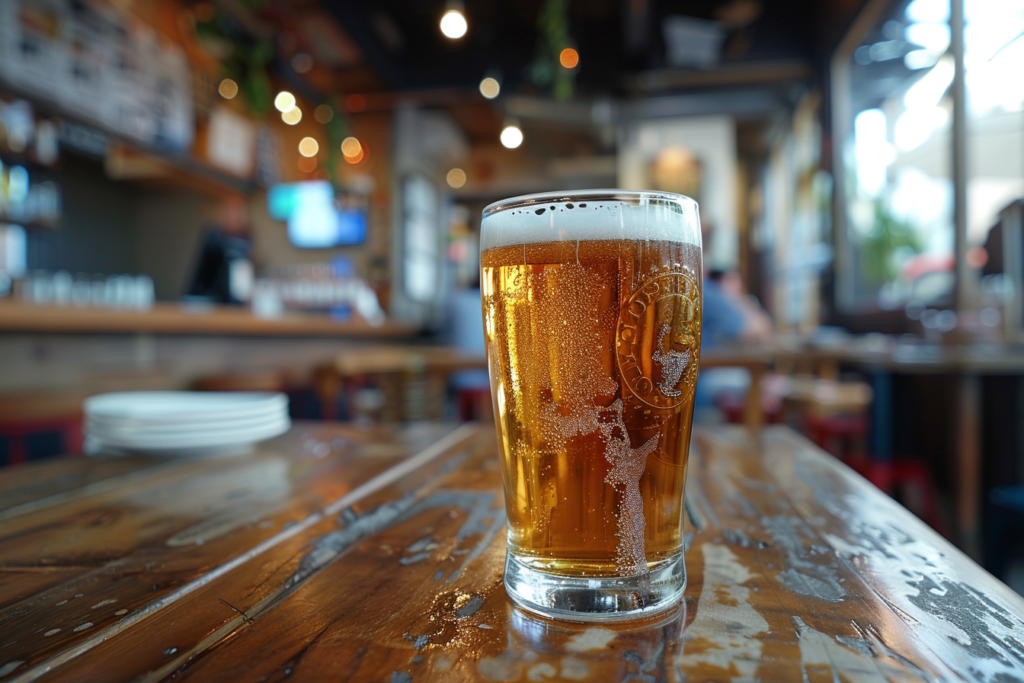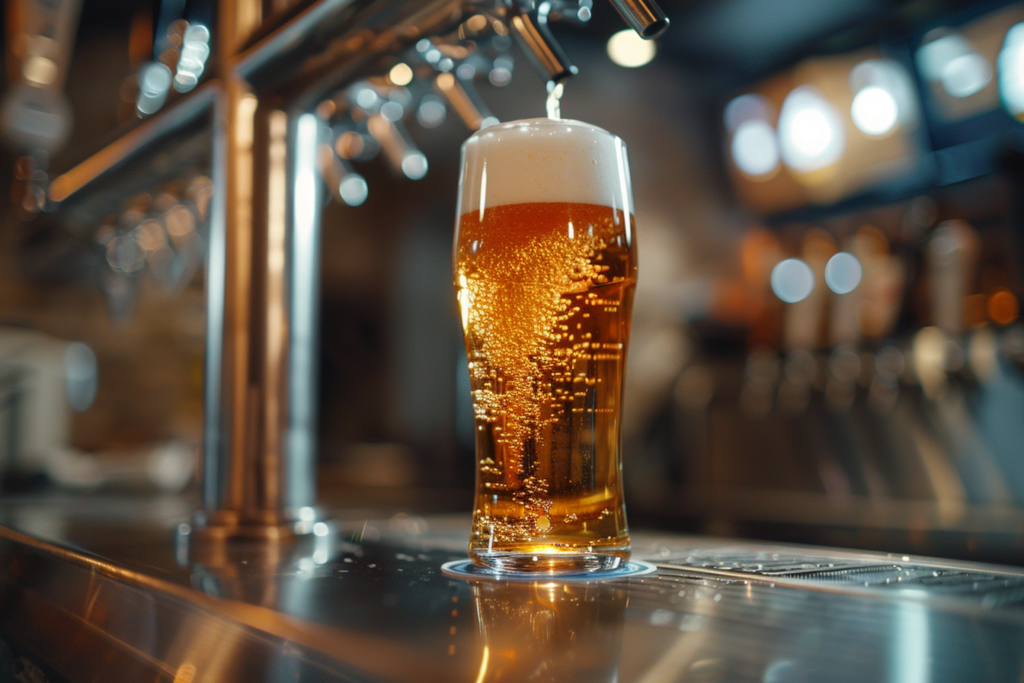This Happens To Your Body When You Drink Beer Every Day
For many people, the ritual of enjoying a cold beer after a long day or during some casual conversations with friends is one of those age-old truisms that cannot be wished away from American culture.
Beer has been a common drink for centuries because it has diverse flavors and rich cultural significance. Therefore, it’s important to understand the impact that having beer every day can have on your health.
However, daily consumption of beer is not without its own adverse effects. Apart from weight gain and liver problems, there are several other health issues that result from drinking beer daily such as sleep deprivation and dehydration.
Understanding how this beloved beverage interacts with the body and recognizing the potential outcomes of overindulgence is paramount.
Here’s what exactly happens to our bodies when we start taking beer on a daily basis.
Weight Gain
Being someone who like drinking of beers I know that drinking them every day leads to added weight. While it does not have any nutritional value, since it contains empty calories which add up in my caloric intake overall.
A 2015 study showed how quickly these can pile up into extra calories due to carbohydrate content in most beers.
Drinking beer every day can result in consuming more calories than my body needs, ultimately leading to weight gain. However, this weight gain is not about appearance only; it carries serious health risks such as obesity among others.
Considering all this I would want us discussing moderation in my own choice of beers.
Dehydration

Indulging your self into a habit of drinking a bottle of bear on daily basis seems harmless but you will end up feeling parched and drained out by dehydration caused by alcohol consumption afterward.
Alcohol serves as a diuretic thereby making you pass more urine than you take in .
This imbalance may lead to dehydration, which presents symptoms such as headaches, tiredness, excessive thirst and laziness according to a study.
Your hydration status not only affects your hangover but also impacts physical performance metrics. Thus, drinking every day emphasizes the need for adequate hydration from other sources.
The diuretic properties of alcohol can exacerbate dehydration especially when taken regularly. This does not only make hangovers worse but also diminishes physical functioning and mental abilities.”
To counterbalance the dehydrating effects of alcohol we must prioritize hydration by taking enough water and electrolytes each day.
Replenishing lost fluids is necessary to support normal bodily processes such as metabolism, temperature regulation or cognitive performance.
When individuals are proactive in addressing their hydration needs they can help mitigate the detrimental effects of alcoholic consumption on their general health and wellness.
The inclusion of strategies such as consuming hydrating foods and alternating alcoholic drinks with water will enable maintenance of proper levels of hydration thus reducing risks of dehydration-related complications associated with everyday drinking.
Weakened Immune System
You should know that your immune system may be weakened if you drink heavily, thus making you prone to diseases.
It is essential to appreciate that alcohol affects the immune system and decreases the efficiency of protecting against infections.
Furthermore, it might hinder your full recovery by affecting you even in such activities as exercising at a gym.
Risk of Developing Liver Disease
The liver is under considerable threat from daily beer drinking.
According to the National Institute on Alcohol Abuse and Alcoholism (NIAAA), excessive alcohol consumption can lead to hepatitis or inflammation, fatty liver disease and cirrhosis over time.
Therefore, it’s important to limit alcoholic intake and engage in moderation for good health of the liver.
Lifestyle changes like eating well, being active and avoiding too much drinking can protect your liver and keep you healthy in general. This calls for regular medical checkups and screenings for early interventions through care.
Sleeping Problems

Alcohol including beer has an impact on sleep quality; therefore understanding this is crucial. Although one may feel sleepy after taking beer initially, research shows that drinking causes disturbances in normal sleep patterns thus leading to fragmented sleep which does not restore body functions adequately.
It has been found that alcohol shortens the period required for falling asleep as well as prolongs deep slumber during its early stages at night. However, later into the night these effects become more disadvantageous with regard to its quality.
The outcome of consuming alcohol could cause higher number of awakenings during night than usual especially when there is less rapid eye movement (REM) sleep which plays important roles in cognitive functioning as well as emotional regulation while having lighter sleep overall.
This may lead people into experiencing un-refreshed state upon awakening even though they get sufficient hours of sleep throughout entire night period.
Thus individuals should pay attention to their amount of alcohol intake particularly if they have problems with sleep or day-time tirednesses.
It will significantly improve overall quality & daytime functioning by working out strategies for lowering alcohol consumption and prioritizing good sleep habits.
Lack of Essential Nutrients
A nutrition and health expert has to understand the effect of drinking on nutrient uptake and general nutritional status. Through any source, alcohol interferes with the absorption of vital vitamins as well as minerals thus creating possibilities of such deficits.
One way by which alcohol affects nutrient absorption is through inflaming the stomach lining thereby reducing production of gastric acid.
This leads to poor digestion and assimilation of certain nutrients especially B-vitamins that are needed for energy production and maintenance of good physical condition.
Moreover, most metabolism of alcoholic beverages occurs in liver responsible for nutrient metabolism. Continuous consumption impairs its ability to store and use vitamins as well as minerals effectively thus worsening deficiencies.
Consequently, this may lead to more harm caused by lack of essential elements like zinc or iron than chronic deficiency alone.
Apart from that, it facilitates urine output by acting as a diuretic which can result into loss other essential minerals like potassium, magnesium or calcium.
This failure could further contribute toward making malnutrition worse than because already there is an imbalance in nutrients due to their insufficient replacements
Thus, personal attention should be paid to nutrition by people who regularly drink alcohol, and they should consider adding foods rich in nutrients to their diet in order to mitigate the possible consequences.
This can be achieved through a balanced diet, adequate hydration as well as engaging healthcare providers during this time.
Dermatological conditions related to alcohol abuse
A specialist on health and fitness is required to know what effect taking alcohol has on skin health. Alcohol is capable of causing dehydration in the body whereby chronic dehydration can have serious effects on the skin including dryness and flakiness.
It is also known for dilating blood vessels which makes one have facial redness with appearance of broken capillaries.
In addition, constant skin hydration due to excessive alcohol consumption over time leads into loss of elasticity that results into fine lines and wrinkles. Furthermore, it inhibits absorption of vital nutrients that are needed for healthy skin such as vitamin A and antioxidants among others.
Lack of these nutrients hampers the ability of the skin to regenerate itself or protect its own self against environmental damage from oxidation stress.
Coordination Absence

It is important to recognize how coordination and motor skills are affected by alcohol intake.
Drinking a single beer may relax one, yet drinking several drinks can greatly impair coordination and motor function. Because of this, poor judgment, increased likelihood of accidents and possible injury may result.
Alcohol affects the central nervous system, slowing down neural activity and interrupting the brain’s ability to transmit signals effectively.
These effects could be significantly worse in people with low tolerance levels or those who consume more alcohol.
Engaging in activities such as driving or operating machinery that require precise coordination or rapid reaction times while under the influence of alcohol poses a significant risk to one’s personal safety as well as that of others nearby (Niehoff 2009).
Impaired judgment and slower reflexes increase accident occurrences, making it essential that people have caution when consuming alcohol.
Dysregulation of Blood Sugar
A study conducted in 2015 demonstrated through Biomolecules asserts that regular beer consumption has considerable implications for blood sugar levels which might lead to conditions such as insulin resistance and elevated type 2 diabetes mellitus risks.
This happens mainly because there is sugar contained in some beers when added to insulin control problems that alcohol causes hence undermining efficient regulation of glucose level by the body.
In conclusion, it is clear that moderation should always come into play whenever anyone opts for a glass of bear (Lentis Health Care n.p.).
Those suffering from diabetes predisposition or already dealing with blood sugar control matters need to exercise caution in their drinking habits so as not to experience any adverse complications associated with glucose levels and overall body wellbeing.
Moreover, educating individuals about diabetes risks occasioned by immoderate consumption of alcohol will enable them make informed decisions on their eating habits and other lifestyle practices.
